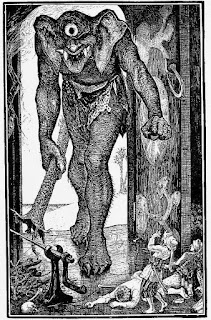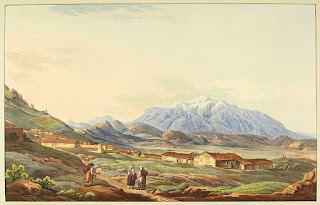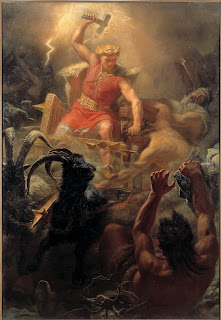Week 6 Story: Odysseus, Sindbad, and the Giant

The Giant by Henry Justice Ford ( Wikimedia ) Odysseus, Sindbad, and the Giant “…And at last I arrived at this cave where we now feast.” “You expect me to believe there exists a valley of diamonds and serpents larger than elephants? That by attaching a large roast to you back you managed to escape by the wings of a great bird? Only to be rescued by merchants flapping their arms and yelling?” “Ay, this is the story of Sindbad the Sailor.” The room grew quiet as Odysseus rose, tension mounting as he said “How could you insult me such telling ridiculous lies. Do you think I am a fool?” Then, just as Sindbad began to fear for his safety Odysseus burst into laughter and so too did both crews. “Sindbad the Sailor, for all the wonders you have seen, you still cannot best the look on your face just then. I too, have had many great travels and experiences, the tales of which many would cast aside as horrible lies. Let us continue to share these stories while we fill our bellies, what a ch










